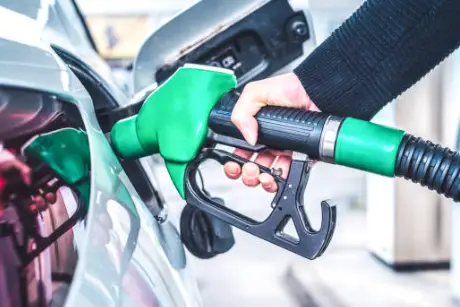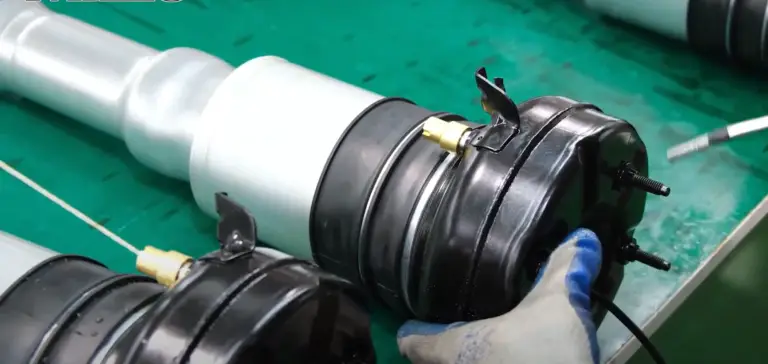Bmw Battery Won’t Charge? Here’s What You Need To Know
The BMW brand has been in the motor industry for a long time. It’s earned customer respect and satisfaction through their vehicles. These vehicles come with reliable components. However, the battery won’t charge after a period. So, why a BMW battery won’t charge?
The battery hardly charges when you have a damaged terminal, a rusty alternator, a broken serpentine belt, or loose wiring. A faulty ECU is a prime culprit affecting the charging process. Additional issues like burnt diodes, defective voltage regulators, and ground straps hinder the BMW battery’s charging.
Identifying these issues means you’ve solved 50% of the problem. If you’re a newbie unaware of these issues, hop in to discover these issues yourself.
Contents
Why is my BMW battery not charging? [With Solution]
When you’re trying to find out why your BMW battery won’t charge, you’ll find similar causes to other vehicles. So, you don’t have to worry about exceptional reasons. However, new issues arise when things become a bit complex.
If you’re unaware of the reasons behind your BMW battery charging issue, this analysis will help you to discover them quickly.
Damaged Battery Terminals
It’s a common issue when your BMW is too old. Damaged terminals fail to maintain the resistance and deliver the required electricity to charge the battery fully. Consequently, the battery becomes dead quickly.
You must regularly maintain your BMW battery to avoid battery terminal damage. If the damage is done, replacing the battery is the only solution.
Defective Alternator
The alternator works like a power generator for the battery. When you’re driving your car, the alternator charges the battery.
But a short circuit in the rotor creates more problems, especially in the battery charging section. Your BMW’s electrical system will fail without a charged battery.
To confirm the issue, you should check the alternator’s voltage with a multimeter. If the voltage is not between 14.2 to 14.7, you should follow the manual for the necessary steps.
Read Also: BMW Vehicle Key Battery Empty: Why & How To Deal With It?
Broken Serpentine Belt
Before inspecting the alternator’s voltage, you should inspect your BMW’s serpentine belt.
It delivers power to the alternator from the engine. However, the serpentine belt wears out with time, resulting in less power delivery to the alternator. Finally, failing to charge the battery.
You shouldn’t worry much if the belt and pulley are at fault. But you should replace the serpentine belt if the situation is critical.
Loose Wirings
It’s the most common issue why your BMW battery won’t charge. The wires loosen while driving, especially on rough surfaces.
As a result, the battery faces the final judgment. Sometimes these wires get dirty and fail to deliver the necessary power to charge the battery.
Tightening the loose wires solves the issue temporarily. You should clean the lines regularly to avoid these issues. In an emergency, you must install new power lines to charge your BMW battery continuously.
Read Also: Why BMW Won’t Start After Changing the Dead Battery?(Fixed)
Poor Battery Performance
When the battery itself is the issue, it’s pretty elementary to notice. Your BMW battery’s performance will reduce significantly with time.
It also affects the battery charging method. Various battery parts fail to perform optimally, resulting in battery charging problems.
Installing a new battery in your BMW costs less than changing the battery parts. It would be best to take your BMW to the nearest repair shop to install a new battery.
Damaged Ground Strap
The ground strap bridges the chassis and the battery’s negative port. When you drive your BMW, the temperature rises around the engine section affecting and changing various engine parts.
This rising heat changes the ground strap’s structure, resulting in battery charge failure.
Try to monitor the temperature after driving your BMW. It’s pretty tough to maintain the heat around the engine while driving.
It would be best if you changed the ground cable to avoid inevitable battery failures.
Read Also: Why BMW Battery Discharged While Stopped? (Cause & Fix)
ECU (Engine Control Unit) Issues
The ECU operates and manages the alternator and other car components. If the ECU is problematic, the alternator may also stop working.
The car’s battery discharges faster, the engine stalls frequently, or the vehicle won’t start when the ECU malfunctions.
You’re always one command behind that will stop your BMW’s ECU from functioning.
You must scan your BMW to ensure the ECU issue. You should install a new ECU system in your BMW if you’re on a tight budget.
Burnt Diodes
Diodes, particularly alternator diodes, create a smooth current flow. These diodes fail due to overuse or heating. If one of these diodes is defective, it’ll affect the battery charging.
Use a multimeter to inspect the condition of the diode. Run the meter over the engine for a perfect reading. The meter will show zero voltage if the diodes are in good shape.
Read Also: How To Check The BMW E38 Battery Is Recharging or Not?
Problematic Voltage Regulator
The voltage regulator keeps a specific charging voltage constant. Your BMW battery is powerless when it fails. Sometimes, the wires and accessories blow due to this issue.
When you inspect the batter with a multimeter, it’ll show a high voltage of nearly 13.7V.
The alternator will provide too much electricity to it. You can adjust the voltage level to fix this issue. If the regulator comes off, you must insert a new one.
Fuel Spillage
It’s a minor yet sensitive issue. Spilling oil on the alternator while filling the fuel tank can damage the alternator.
If you continuously spill oil on the alternator, it tends to rust over time. Finally, you won’t be able to charge your vehicle’s battery.
Be careful while filling up the tank. Try not to spill any oil on the alternator. If you accidentally spill oil, clean it asap.
Read Also: Battery Discharge Increased In BMW? (7 Reasons Why)
Frequently Asked Questions (FAQs)
Do you want to discover some extra information about the BMW battery charging issue? Then, go through these additional questions.
Do Plugged-In Devices Drain My BMW’s Battery Faster?
Plugged-in devices drain your BMW’s battery faster. For example, smartphones and OBD-II scanners extract more charge while being used. If you often use your vehicle to operate these devices, the battery tends to die quickly.
Should I Drive My BMW With A Flashing Battery Icon?
It would help if you didn’t drive whenever you notice an alert light flashing on your BMW dashboard. If the battery icon pops up while driving, you should fix it asap. Driving with this light might leave you on the road with a dead battery.
How Much Should I Spend To Change My BMW’s Lousy Alternator?
Fixing the alternator depends on your BMW model and year. Installing a new alternator will average cost around $470 to $925. The mechanic will charge you $130 to $170 as a mechanic fee. As for the parts, you must spend $330 to $750.
Does Parasitic Drain Affect The Charging Procedure?
Parasitic drain can affect the charging procedure and drain the battery pretty quickly. It means keeping the light on unnecessarily, plugin-in any electrical device like a smartphone for charging. Using the headlight without any reason also counts as a parasitic drain.
Read Also: What Happens If You Put Smaller or Under-Sized Battery In Your Car?
Final Words
The BMW battery issues don’t appear overnight. It takes a reasonable amount of time to damage the battery, consequently stopping the charging process. If the battery is the problem, you should replace it with a new one.
We hope the discussion about why a BMW battery won’t charge has given you the pertinent information. You should detect the issues as quickly as possible. Otherwise, these issues might affect the overall engine performance.
If you notice any ECU-related problems, take the vehicle to a mechanic asap. Avoid charging your smartphone using your BMW. Don’t forget regular maintenance prevents most vehicle problems.




![6 Reasons Why BMW Bluetooth Not Working [Ultimate Solution]](https://luxurycarzip.com/wp-content/uploads/2022/12/bmw-bluetooth-not-working.jpg)
